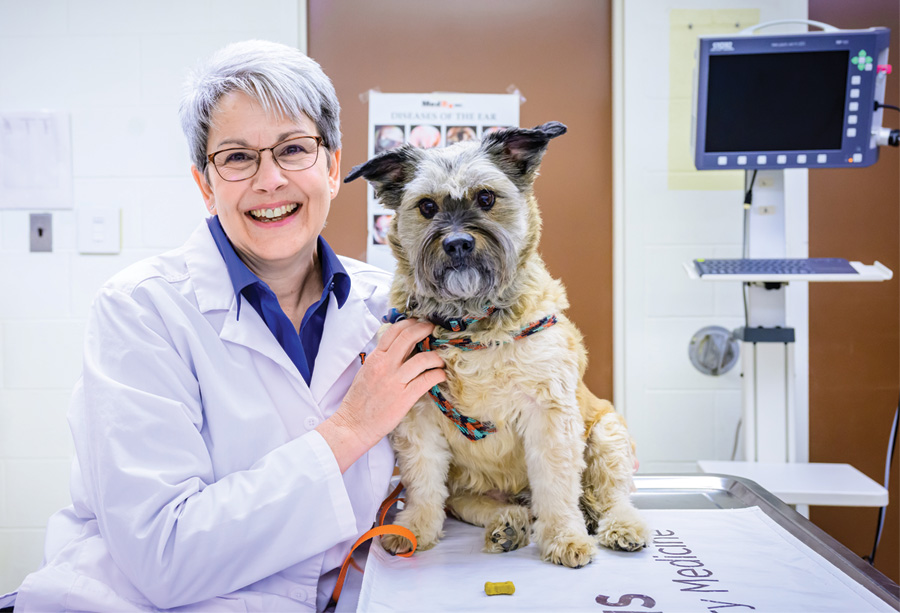Tell us about your background.
![[Dr. Timothy Fan]](https://vetmed.illinois.edu/wp-content/uploads/2021/04/TimFan-web-206x300.jpg)
I earned my veterinary degree at Virginia-Maryland Regional College of Veterinary Medicine and completed a one-year small animal rotating internship at the University of Illinois. Then I pursued a small animal internal medicine residency at Cornell University. In 1998 I returned to the University of Illinois for advanced clinical training in medical oncology with Dr. Barbara Kitchell, and I have remained at Illinois ever since.
I gained board certification in both internal medicine (2000) and medical oncology (2001). By then I was inspired to complete a PhD in tumor immunology. I investigated the anticancer effects of cytokine manipulation strategies for the treatment of locally invasive and metastatic tumors in mouse models of disease.
In addition to being a tenured professor in the Department of Veterinary Clinical Medicine, I hold positions at the Carl R. Woese Institute for Genomic Biology and the Cancer Center at Illinois.
My research focuses on developing novel treatment strategies for companion animals with spontaneously arising cancers and through comparative oncology research bringing new treatments to human patients as well.
How did you become interested in oncology?
The most memorable medical cases during my residency were often cancer-related. I can still vividly remember some of the patients, including a collie with a Sertoli cell tumor that secreted estrogen leading to bone marrow ablation, a English setter with multiple myeloma with hyperviscosity syndrome, and a black cat with splenic mast cell disease.
Additionally, owners often are highly motivated to pursue diagnostics and therapy for pets with cancer, and they are very appreciative of help provided.
Lastly, the study of cancer is highly molecular, and I enjoy thinking about the complexity of these diseases and how to help pets with cancer through discovering new drugs and therapeutic options.
What are your special interests?
While I have broad interest in veterinary medicine, I am most passionate about comparative oncology. As a veterinary oncologist and translational scientist, I am well situated to help bridge scientific knowledge gaps that might exist between pets and people with cancer. There are rich opportunities to evaluate novel treatments for veterinary patients with cancer, with potential for groundbreaking findings to be extended to help people with cancer.
What led you to become double boarded in oncology and small animal internal medicine?
As a young and developing clinician, I really enjoyed trying to find the underlying disease cause for symptoms presented by dogs and cats. To me, it was exciting to think about the pathophysiology of different diseases that could explain the clinical manifestations that pets were demonstrating. My love of the “hunt” for finding diseases led me to pursue training in internal medicine, where I was exposed to different pathologies of endocrine, autoimmune, and neoplastic origin. Pets with cancer presented the most challenging and interesting cases, and this drove my interest to pursue additional training in medical oncology.
Tell us a fun fact about yourself.
While I consider myself a “dog person,” I also am really interested in ornamental fish, and this is my main hobby. Currently, I have several large saltwater aquariums in my basement and office, but also spend a lot of time with a small koi pond in my backyard. It is really relaxing to watch the fish swim around, and I am fascinated with their behaviors and personalities.

![[Dr. Timothy Fan]](https://vetmed.illinois.edu/wp-content/uploads/2021/04/TimFan-web.jpg)

